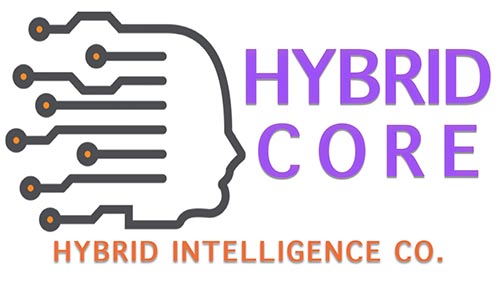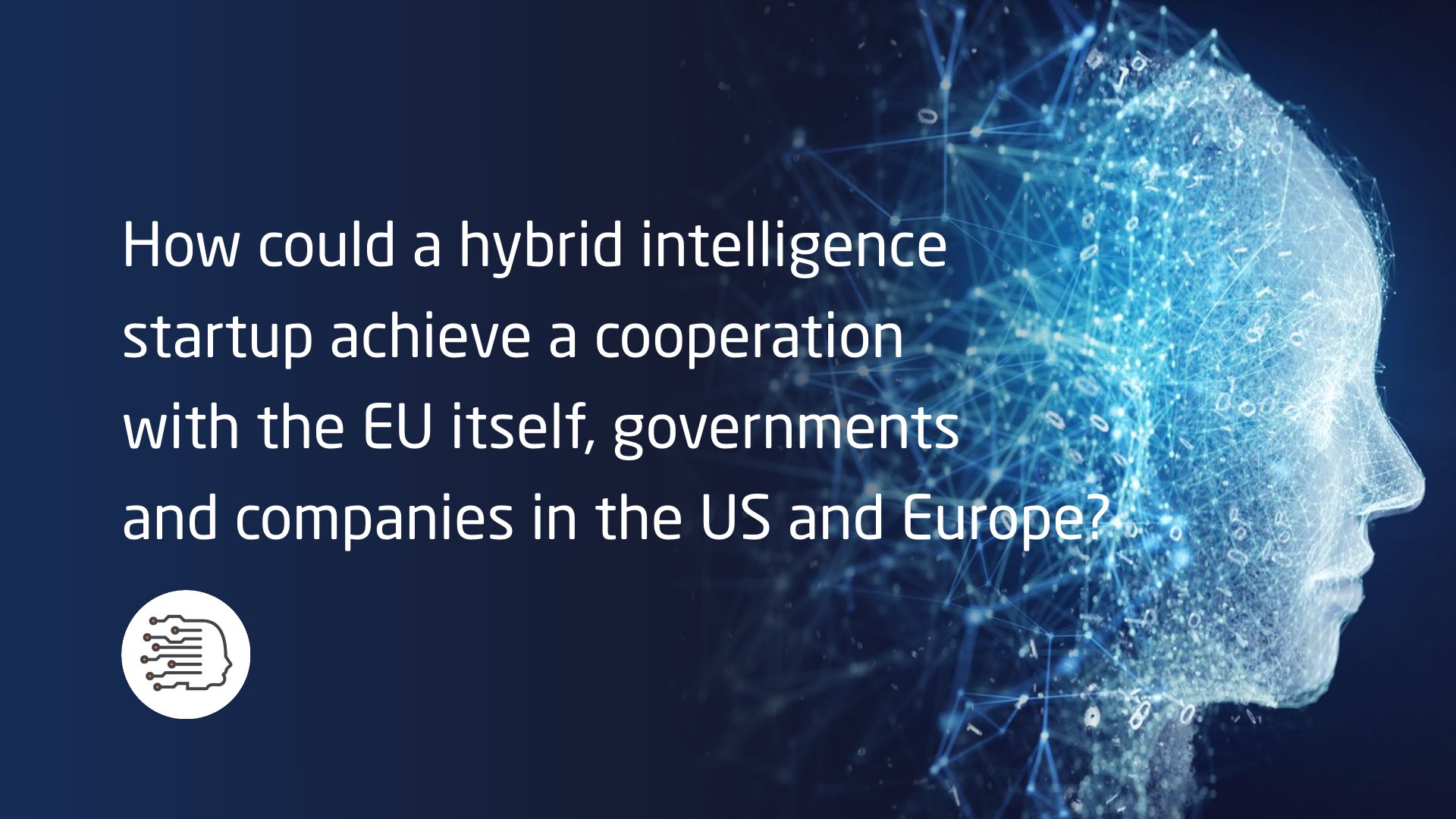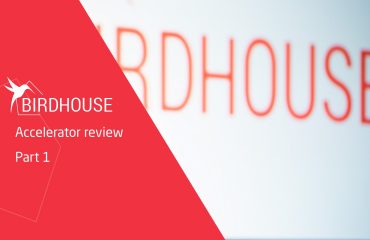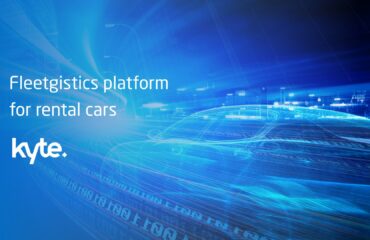What do we know about chaos? Everyone interprets this phenomenon following personal experience. Almost any person can imagine a rather scalable disorder that cannot be analysed or predicted as the number of unknown factors can be infinite. Edward Norton Lorenz described it in the genius way. ‘Chaos: When the present determines the future, but the approximate present does not approximately determine the future.’

Is it possible to deal with chaos thanks to current technologies?
Even though the American scientist was one of the fathers of meteorological predictability, he did not have enough technical facilities to be not so rigorous concerning chaos. Artificial Intelligence and Machine Learning cannot replace human minds, but they have made it possible processing of the huge data amounts. Hasan Suzen is among the pioneers who have understood how to use AI for chaos analysing, and has founded a startup named Hybrid Core. To know more about the astonishing way towards cooperation with international organisations, governments, and companies in Europe and the States we decided to do an interview with him.
What is Hybrid Core and how it makes life better?
“We are a hybrid intelligence company,” began the CEO of Hybrid Core. “This is a new phenomenon in the field, and our team is passionate to develop it. Hybrid CORE develops next-generation decision technology. With high-tech privacy and precision, we provide Explainable Hybrid Intelligence Solutions to public and private sectors in actionable business intelligence, bespoke intelligent threat & risk analysis, targeted marketing & sales, and smart safety & security.”

It is always interesting to know how the startup concept has appeared and what has been its cornerstones. “The underlying idea is that there is no chaos in the universe. Each decision, action, selection or choice has its own mathematical models. Interconnectivity, interactions and relations in complex ecosystems can be configured with deep math and predicted through AI algorithms but with human augmentation and amplification.”
“The underlying idea is that there is no chaos in the universe. Each decision, action, selection or choice has its own mathematical models.”
Hasan Suzen
Preconditions and drivers of Hybrid Core existence
Positioning itself as the improved global AI and ML decisions provider seems to be unreal for the startup, and Hasan Suzen has explained how they cope with the competition in this sphere. “Actually, Hybrid Core is the brainchild of Beyond the Horizon International Strategic Studies Group, which is an independent, non-profit think and do tank. We also have roots in Horizon Global Academy, which provides training and consultancy services mainly in AI and Cyber Security domains. These two organisations have already provided insight and vison to governments, international organisations, practitioners, researchers, and industry representatives as well. This means that Hybrid Core is well established on these valuable backgrounds and an extensive network of networks.”
To bring more understanding to the discussion, the interview also highlighted their core drivers. “Our principal motivation is the rising demand for adoption of AI to improve planning, threat & risk monitoring, early detection, and predictive assessment both in public and private sectors. Additionally, we aimed at improving the operational efficiency of autonomous systems and pre-emptive applications.”
The products of the firm
What relates to the products Hybrid Core offers, its CEO divided them into a few categories. “Our product portfolio, Hybrid Intelligence-Based Decision Support Systems, consists of three main products:
- Smart Navigator: It transforms big data into actionable business intelligence; bespoke intelligent risk & threat analysis.
- Smart Sonar: It transforms big data into targeted marketing & sales and provides, optimises customer acquisition and maximises marketing campaign.
- Smart Predictive Policing: It transforms big data into safety & security in line with smart cities approaches.
In addition to smart products, we deliver the following services:
- Proprietary Databases
- Strategic Foresights Analysis (Case-Based Analysis and interactive white papers)
- Smart Preemptive Decision-Making Support (Case Management)”
The list of services can say a little about the product, while the list of clients or their industry specifics broadens the perception. “Our targeted customers are companies operating in energy security, defence, automotive, construction, banking, health and food; governmental institutions, International organisations such NATO and the EU; and Academia,” added Hasan Suzen.
What spheres are requiring AI?
It may seem strange that world’s most influential organisations are looking for technological support from the side of startups, so we have asked how Hybrid Core has found a gap in this kind of demand. “Developing fully autonomous AI-powered systems is a long journey, but there is a rising demand for AI products in the market; at the same time, trustworthy and precision are really big concerns. In essence, there is a gap in the market regarding trusted AI-powered decision support systems in the public and private sector as well. As recent studies show, European AI industries mainly focus on data analytics, sales & marketing, health & medicine, process automation, and image recognition.”
“In essence, there is a gap in the market regarding trusted AI-powered decision support systems in the public and private sector as well.
Hasan Suzen
The human factor makes AI usage much more effective
Even though AI development has come to a standstill to some extent, Hasan Suzen explained what has allowed them to use this technology in many spheres. “Although only data analytics can be used for decision support tool, there is still a need for algorithmic decision systems but with human augmentation and amplification for addressing the trustworthy and high accuracy concerns. Furthermore, recent AI use cases highlight the need for human augmentation, particularly human-machine teaming addressing complex problems. The reason is simple: algorithmic decisions are not automatically equitable just by virtue of being the products of complex processes, and the procedural consistency of algorithms is not equivalent to objectivity,” claimed the interview.
“Additionally, although there exists a large volume of efforts at the EU and governmental levels, there is still lack of applied intelligent systems developed by companies to address societal challenges such as radicalisation, extremism, terrorism, or migration & integration. Considering all these reasons, we think that it is high time to start a business in next-generation decision technology,” concluded a CEO of Hybrid Core.
What developers should a startupper hire to deal with AI?
Another interesting question relates to the possibilities that a startup possesses to applying AI in such a broad sense. “In the software part, to accomplish complex tasks and collectively achieve superior results, human intelligence and AI experts work symbiotically. The concept of the project will be materialised by a cross-functional human-machine team which consists of artificial intelligence and data scientists on the one side; computational social scientists and neuroscientists, and subject matter experts on the other.”
To give more details, Hasan Suzen continued by describing the methodology they use. “Also, we work with disruptive technologies and developed our own new methodologies and approaches to an algorithmic decision. Namely, they are multi-space actor-event (incident)-factor-indicator analysis model, a neural network of neural networks, privacy-preserving federated algorithms, and multiple futures scenarios simulations, which enable us to provide hybrid intelligence solutions. We hope it could be a ‘game changer or game broker’ in the market.”
The future of hybrid intelligence technology
The issue of the future development of technologies is a tough one nowadays, but the interviewee sees various perspectives of their work. “We believe that our hybrid intelligence-based decision support systems will revolutionise how we model, predict and control complex systems. We could provide solutions with unique algorithms and hybrid toolbox, combining human and machine expertise and using interdisciplinary approaches. The backbone of our cognitive products is a deep understanding of patterns & interconnectivity in complex ecosystems and mapping cognitive architecture beyond computational creativity or the information dynamics of thinking. From this perspective, it could be an advantage for us to develop reusable mathematical configurations and algorithm models.”
“The backbone of our cognitive products is a deep understanding of patterns & interconnectivity in complex ecosystems and mapping cognitive architecture beyond computational creativity or the information dynamics of thinking.
Hasan Suzen
Initial funding and how to cope with it
Amid the most challenging elements of every a startup development is the budget, especially on the first stages. Hasan Suzen opened the curtain how it was in the Hybrid Core’s case. “The initial source of capital investment and startup money are personal assets and our own resources. We have a limited budget during the R&D process, but our team put their heart and soul into what they are doing on a voluntary basis in most of the time. They truly believe in their product or service, and are prepared to work long hours to get all the tasks done that are required to grow and sustain our business.”
How does the team deliver quality?
At that point, the discussion smoothly turned to the talking about the programmers, engineers, project manager, and other staff that develops the product. “The uniqueness of our team comes from its structure, composition and group dynamics. The dedicated and highly sophisticated cross-functional human-machine team is the most valuable asset which enables us to make an asymmetric effect in the field. With a strong team and innovative methodologies, we target the big gap in the market, and we hope to be a game-changer or at least game broker in the global market. That is because we are unique in providing hybrid intelligence-based decision support by addressing privacy and precision concerns,” concluded the Hybrid Core CEO.
One more unique aspect concerning any small firm or a startup is how to measure success. “Our product development life cycle is divided into small components or iterations, so our products can be easily and rapidly developed and tested. Using iterative planning and getting feedback ensures that a delivered product is tailored to the customer’s requirements. The status of the project is measured and evaluated throughout the process to easily adapt to changing needs. As we have complex software development processes, we use scrum framework which defines specific roles, artefacts, activities, metrics for our projects. In short, we use not only innovative methodologies for developing our products but also, we use modern project management technics and tools.”
Clients’ list and plans that impress
We asked the interviewee to share what were the biggest customers they had tried to reach and how Hybrid Core saw the development with them. “I can declare that the first biggest customer will be the EU itself and/or some European countries and companies in the coming months based on ongoing processes. Also, we want to see ‘hockey stick’ adoption rates which imply consistent or increasing growth rates on a percentage basis. To this end, the most exciting users to build up traction are some EU governments, the EU itself, and energy companies at the moment.”
Despite the fact that Hybrid Core is making an effective forecast in different spheres, it was interesting to know how Hasan Suzen saw their further development. “Next year, we aim to get users and as well as investors from North America in addition to Europe and the Middle Eastern countries and companies. Incrementally, we hope to access to global markets and get 1M and 4M euro revenues, respectively. In general, we want to generate a stable customer base and recurring revenues.”
Advice for young entrepreneurs
Our traditional request to all the startuppers is to give some useful advice for other entrepreneurs. “To me, they have to be a “Type D” person,” started the interviewee. “Stratuppers have to be someone who has a Desire for success coupled with Drive, Discipline, and Determination. A business idea is a starting point, but they need more than an idea.”
“To me, startuppers have to be a “Type D” person – someone who has a Desire for success coupled with Drive, Discipline, and Determination.”
Hasan Suzen
Hasan Suzen continued the though he wanted to convey. “First, business knowledge before they start a business is critical. They have to be knowledgeable about many different aspects of business and have a variety of skills. Secondly, finding adequate business startup money is also critical because there’s no guarantee that your business is going to make money right away, and often initial income is too low to live on. In essence, the lack of sufficient funds is a top reason most small businesses fail, but they need to believe that the obstacles they face are temporary barriers to work around, not roadblocks.”
The last element may seem of secondary importance, but Hybrid Core’s CEO made the biggest emphasis on it. “Finally, they [startuppers] must think of business support. To do this, they need to look first to the “home front”. Their family should be their first believers when it comes to their success. Support can come from other sources such as other prosperous business people who can help them avoid dangers and provide insight into what works and what doesn’t. One more crucial aspect is business connections, as the network is everything.”
How to deal with chaos, and why is it crucial?
The concluding part of the interview with Hasan Suzen was a bit philosophical, where both optimism and realism clashed for the truth. “Among our biggest threats is the product’s complexity. From possible investors or customers’ perspective, our sophisticated products may seem too complex to explain how our technology provides full privacy and precision in decision making support. That is why my favourite book is ‘A Brief History of Time’ by Stephen Hawking. I understand how incredible and beautiful our organised chaos of existence is and what there is to discover in our lifetime.”
At the beginning of the interview, it was a bit weird to see that a startup could suggest complex AI and ML solutions for international organisations. However, Hasan Suzen showed his understanding of the preconditions, pitfalls, and possible outcomes of the vast implementation of new technologies on the highest level. One more time it has to inspire young entrepreneurs that the right approach to business can transform a startup into an influential firm even on the global stage.




